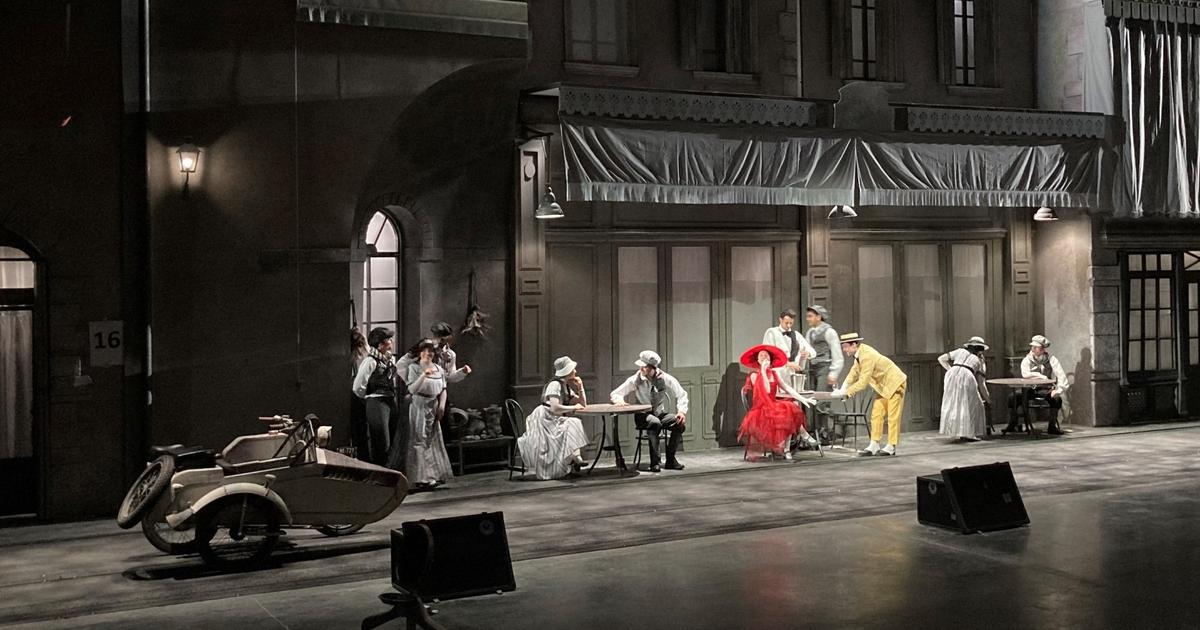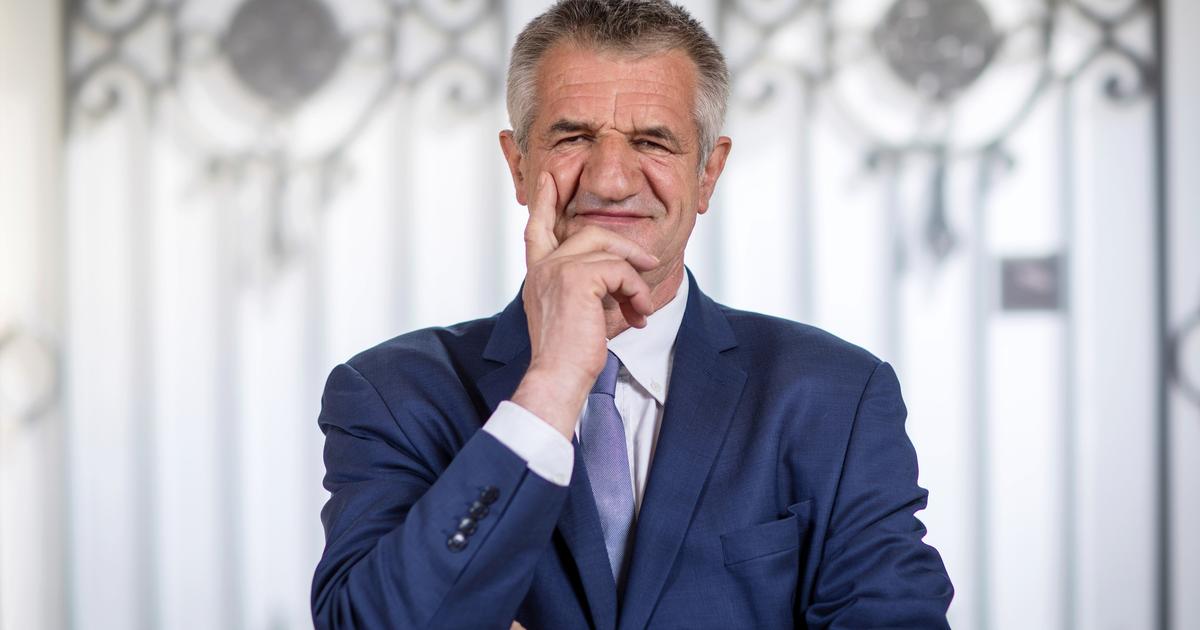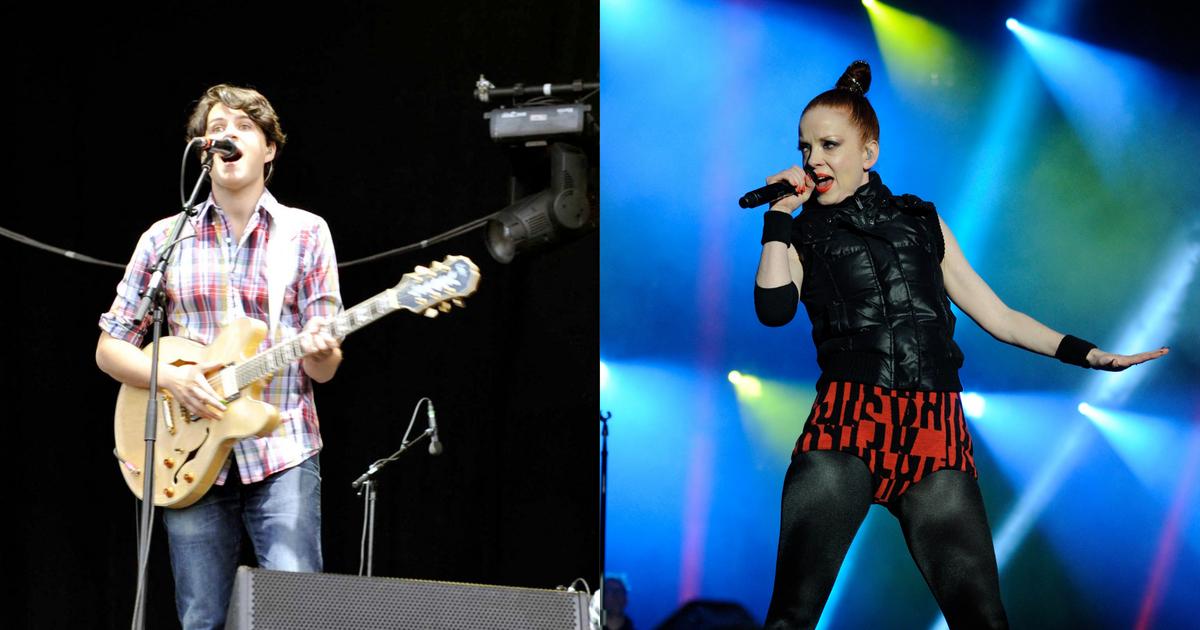Annalena Baerbock.STEFFI LOOS / POOL / EFE
More information
The German Greens seek to revitalize their campaign
Gerhard Schröder managed to recover around 10 points in two successive electoral campaigns, 2002 and 2005. At a certain point in the 2005 campaign, the polls gave the CDU / CSU 50% of the votes, which ended up being a 35%.
Martin Schulz's SPD climbed to 33% in the 2017 campaign, ending at 20.5%.
The German elections have only just started, and we have already seen swings of similar magnitude.
What has happened in the last month is that a green bubble has swelled and burst. People were intrigued by the Greens' choice of Annalena Baerbock as chancellor for chancellor. Although the Saxon MP does well on the political scene, she is not as well known as Olaf Scholz or Armin Laschet. Since his appointment, he has made a number of avoidable mistakes. Its track record is littered with annoying but relatively minor inaccuracies. He did not report payments he received from his party. This data is particularly uncomfortable, since the Greens have defended the transparency of the income of politicians. In the end, neither the irrational optimism of April nor the current disappointment will matter in this election call.What will matter is whether the Greens can convince the Germans of what might constitute a historic turnaround, of a similar magnitude to the turnaround that took place in 1969, when Willy Brandt became chancellor, carried out social reforms, and changed foreign policy.
In April it seemed possible that the Greens would succeed. Now not so much. I believe that the environmental party will succeed in the end, although I am not sure that this time they will reach the goal. Many surveys have recorded the rise and fall of training, but the most important is an Infratest dimap poll on the attitude of citizens to environmental issues. The poll tells us what the Greens are up against. Interviewees were asked the following: should the state prohibit behaviors that are particularly harmful to the climate? 53% answered no. Are you in favor of raising the price of gasoline? 75% said no. Should the Government encourage the change from gasoline cars to electric cars? 57% spoke out against it.
Both Baerbock and fellow leadership Robert Habeck know what they're up against. At the Green Party convention at the weekend, Habeck gave a clever speech in which he defined the politics of the Greens as a question of freedom. It was a clear attempt to reconnect with voters who do not agree with raising the price of gasoline, but who are otherwise open to other points of the environmental program. That will be the battlefield of the next elections.
The Greens are divided. Some delegates spoke in favor of a carbon price higher than 60 euros per ton officially agreed by the party. Habeck told them they would lose the election. The leadership of the Greens prevailed. The so-called
fundis
, or purists, are still important, but they don't have the power they once had. They want a ban on short-haul flights, a mandatory ban on gasoline cars in 2025, and much stricter climate targets. All this interspersed with policies of the old left, including the nationalization of industries.
The other section, known in green parlance as
realos
, focuses more on incentives and investments, with the state in the role of ecological regulator. Baerbock talks a lot about the digital economy, as well as his plans to digitize citizen services. This is the part of the Greens' program that is extremely attractive to Germans who are in favor of environmental investments, but who are opposed to any form of ban. The change in support for environmental training is not just about Baerbock. It also has to do with what they decide to talk about: the price of gasoline, or investments.
However, I would not characterize the debate among the Greens as a debate between the left and the center, because the
realos program
does not fit into this category. The German political center, exemplified by the grand coalitions, advocates industrial corporatism, coal and cars, dependence on Russian oil and gas, and a mercantilist foreign policy. The Baerbock / Habeck wing of the Green Party deviates from the old center on a different axis: it wants fossil fuels to be abandoned, and also a new foreign policy in which climate change and human rights play a much larger role. This is not left, right, or center. It's a category change. And it's what makes the prospect of a green government so alluring.
The question is whether a sufficient minority of Germans is ready at this time to support this leap in the category. A 20% base is a substantial figure in a federal Parliament with seven political parties, counting the CDU and CSU separately. Polls present the Greens as the second force, or the first if the two Christian Democratic parties are considered independently. This marks a significant rise from the outgoing chamber, in which environmentalists are the second-smallest force, only ahead of the CSU. Even after the Baerbock bubble burst, support for the Greens is much higher than in 2017. But, at the current level, it might not be enough for the category change to take place.
I only see two coalitions in which that turn would have a chance to occur.
One is a collation between the Greens and the CDU / CSU in which both parties have more or less equal strength.
Whether the chancellery is occupied by Baerbock or Laschet is not the main issue.
The other architecture would be a collation between the Greens, the SPD and the FDP, the so-called “semaphore coalition”.
But even then, it is far from clear that the Greens can do it.
In an ideal situation, a CDU / CSU / Greens coalition would result in a green investment program, fiscal policy, and foreign policy, while the CDU / CSU would focus on defense, homeland security, and the things that make happy. to rural Germany.
But there are no guarantees that this is what will happen.
I am confident that a program focused on tax incentives and green investments will emerge in the end.
Germany is a rich country whose best times are behind us.
It is in a phase where people realize that something is not quite right, but they are not yet ready to draw firm conclusions from that observation.
Some version of the green revolution may take place, but it will not be the one you might have thought six weeks ago, when for a moment it seemed that the Greens were going to sweep away.
Wolfgang Münchau
is Director of www.eurointelligence.com
Translation of News Clips.

/cloudfront-eu-central-1.images.arcpublishing.com/prisa/LZBZ3VTLFMYMOORMHTWFE227Z4.jpg)













